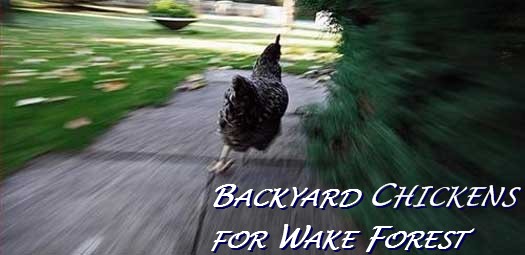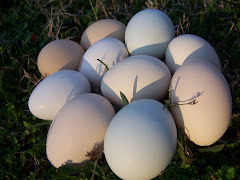Tonight, The Wake Forest Board of Commissioners meets at 7pm. I will be there to answer any questions they may have, and I fully expect them to make the decision that this issue be put to a public hearing. From what I understand, at a public hearing, supporters and dissenters each have a chance to speak about their opinions. If this occurs, I will be ready with my presentation. I have already contacted as many people I know about this possibility, and hopefully, when the time comes, these local supporters will come out in droves to show their support for changing this ordinance.
In light of the recent newspaper articles, and because of the meeting tonight of the Wake Forest Board of Commissioners, I have sent out an email to those I know to be in support of the issue. I thought it would do our cause some good to have the positive opinions clearly stated and made known to the board and the media. Luckily the Wake Weekly has put a 'button' on their web site asking for opinions, and all of the Town Commissioners have their email addresses right next to their pictures on the Town Website.
Here are just two of the helpful comments that have been sent in to either the Wake Weekly or the Commissioners, and have also been copied to me. Thank you for your support, I'm sure there will be an update after the meeting!
*****
Something I've been asking myself recently is, "Why all of a sudden, is there such an interest in backyard chickens?" As the owners of Wake Forest's only permitted flock of urban poultry, my wife and I talk to people every day who express more and more interest in becoming personal and familiar with their food and where it comes from. As spinach, peppers, and tomatoes are pulled off supermarket shelves due to e.coli and salmonella, how can you blame them?
Backyard chickens hearken to the times when the United States was a nation of producers, not consumers. My friend Mike Thorpe was telling me about an conversation he had with his wife's grandmother. Her father raised pigeons, chickens, and other livestock that fed their family inside the city limits of Buffalo, NY. She said that pigeon meat, called squab, is delicious.
Later on, in the early 1940s, nearly 40% of the US' produce needs were met a nationwide Victory Garden program. Communities and neighbors banded together to turn lawns, parks, and vacant property into productive gardens to help "support the boys over there." Chickens offered an inexpensive herbicide, pesticide, and fertilizer for those Victory Gardens.
Can you imagine one third of your family's food coming from a location not more than a mile from your house? It is just as possible today as it was 60 years ago. You can start immediately by purchasing your produce from local farmers at the Wake Forest Farmer's Market on Saturday mornings.
I believe that urban poultry are the proverbial tip of the iceberg as our nation moves into a paradigm shift away from the devil-may-care consumerism that has driven our spending behaviors for the past 50 years. We're living in a situation where words like localvour and "food, not lawns" are beginning to drive our social consciousness once again. Perhaps it's time to create a new Victory Garden program with interest in backyard chickens as the initial driving force.
Best Regards,
David Bissette
*****
Dear Commissioners,
I am writing to you about the petition you have received requesting that the Wake Forest ordinance against chickens be changed. I believe that it should be changed now, and I'd like to tell you why.
I live in Raleigh, where there is no ordinance against chickens in the city limits, and I have chickens. If you had told me two years ago I would now be raising chickens, I would have laughed. But last year, I visited a city coop for the first time, and I was amazed. The chickens were so quiet, you wouldn’t know they were there. There was no odor, no mess – and free eggs! So I took a class on chicken keeping and got my first chicks in 2007. I now have a flock of 12 and just hatched my first chicks last month. So far, 5 friends who have visited my coop are now backyard chicken owners too.
Some chicken facts that you may not know are that, when properly maintained, chickens do not smell. Their manure dries quickly and makes an excellent fertilizer for lawns and gardens. Chickens do not require a rooster to lay eggs, only to lay eggs that could potentially hatch into chicks. Chickens can be purchased online and safely shipped through the mail when they are just one day old. Chickens can lay up to an egg per day when young. Production slows with age, and may cease around 5-6 years. The average natural lifespan of a chicken is about 8 years. Hens are surprisingly quiet – you could be just a few feet from a chicken coop and never know it. Most people find the clucking sounds they make to be soothing. I also find feeding them and watching them forage and interact to be a great relaxer at the end of the work day.
In May of this year, I participated in the 4th Annual Henside the Beltline Tour d’Coop, a group of 20 backyard chicken coops inside the beltline in Raleigh that are open for the public one day a year. See http://www.kalmialandscapedesign.com/tourdcoop.htm
Over 350 visitors came to my house to tour my coop, and they were amazed just as I once was.
Unlike the first coop I saw, I have an accidental rooster. Before it began crowing and I had to change its name to Quincy, none of my neighbors – even those right next door - knew I had chickens at all. When Quincy began crowing, I was worried that he would disturbing my neighbors and I planned to find him a new home. Then, during the Tour, I was surprised that many of my neighbors told me that they liked hearing him! “Doesn’t he bother you?” I asked. “No,” one neighbor replied, “I love to hear him in the morning. It reminds me of growing up on the farm. P lease don’t get rid of him!” “It reminds me of my grandparents’ farm,” said another, who loved seeing the way her own grandson giggled loudly every time Quincy crowed. I keep my rooster inside his coop at night and until the end of quiet hours in the morning, so his crows are muffled a bit for my neighbors’ benefit. In the year I’ve had him, I’ve never had a complaint about my chickens or my rooster. But I have had lots of compliments!
Perhaps the best way to convince you would be for you to see it for yourself. I would like to invite you to visit my coop in Raleigh. I live near the intersection of Oberlin Road and Glenwood Avenue. Please just email me at ***(has been removed)** to set up a time to visit.
In summary, chickens are great pets and should be allowed in city limits. They cause my neighbors far less disturbance than some of my area’s night-barking, garden-digging, cat-chasing, and lawn-droppings-leaving dogs. They are a wonderful way to teach children about responsibility, sustainability, and the sources of food. They provide nutritional eggs which, like a backyard garden’s produce, are both more delicious and (I believe) more nutritious than what I could buy at the grocery. They eat bugs and provide rich fertilizer. And they are fun and relaxing to own.
I hope that you will overturn the ordinance and allow chickens in Wake Forest. Please feel free to contact me to visit my coop and see for yourself, or to ask any questions you might have.
Thank you for your time,
Julie W.
*****
Tuesday, August 19, 2008
Why all of a sudden, is there such an interest in backyard chickens?
Labels:
comments,
Commissioners,
Green Living,
Newspaper Publicity,
Wake Weekly
Subscribe to:
Post Comments (Atom)






2 comments:
I wish you the best of luck. I don't live in your area but have chickens in my backyard also. I cannot imagine not having them now. They are so entertaining.
I agree: the backyard urban chicken (or suburban chicken)is the beginning of a shift from consumers to producers. We started with chickens five years ago, just 8 miles away from Penn State University where I teach, to accompany our large garden for summer produce. Now we're buying all our meat from local farmers, and we're planning to fence our field to increase the chicken flock and raise several lambs next summer as well. Pigs may also be in the picture soon, if we can figure out how to create a fence that will hold them. (Having raised them in suburban Wisconsin as a child, I know just how quickly they can get through a fence and begin rooting up a neighbor's lawn and flower beds.) Is anyone doing a running tally of all the municipalities that are passing laws permitting urban chickens? I believe that State College, PA, has OKed raising up to 5 hens in the town proper.
Post a Comment